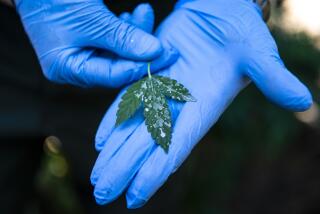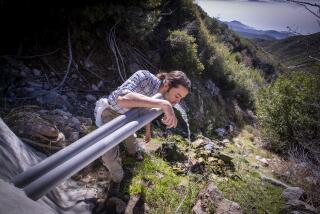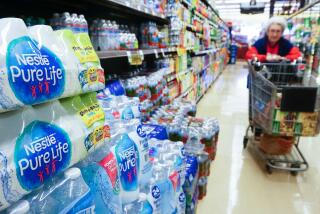FDA Oversight of Bottled Water Assailed : Health: House panel says that, despite high price, it may be less pure than liquid from tap. Supervision of bottlers’ tests seen as inadequate.
- Share via
WASHINGTON — A congressional panel accused the Food and Drug Administration Wednesday of “inexcusably negligent and complacent” oversight of the bottled water industry, noting that, despite its high price, bottled water may be less safe than tap water.
Rep. John D. Dingell (D-Mich.) said a review by his House subcommittee determined that microbiological contamination exceeding allowed levels was found in nearly one-third of the bottled water samples tested by the FDA in a 1990 survey.
Of 31 potential contaminants for which the government has established safety standards, the FDA checked for the presence of no more than five in 94% of the tests, investigators for the General Accounting Office said in a report prepared for Dingell’s panel.
Although consumers pay 300 to 1,200 times as much for bottled water as tap water, 25% of all bottled water comes from public drinking water sources, said Dingell, chairman of the investigations subcommittee of the House Energy and Commerce Committee.
The FDA is responsible for setting standards for bottled water, ensuring that it is tested periodically and inspecting bottlers’ test records and sanitary conditions.
According to the GAO report, there is little assurance that tests are done regularly or that their results are accurate because the FDA does not require bottlers to report their findings or maintain records long enough for government inspection.
John Harman, the GAO’s director of food and agricultural issues, said that the FDA has made bottled water regulation a “low priority.” He noted that public drinking water, which is regulated by the Environmental Protection Agency, generally is subject to more stringent requirements.
Fred Shank, director of the FDA’s Center for Food Safety and Applied Nutrition, disputed the committee’s conclusions, saying that the agency has “no reason to question the safety of bottled water.” The FDA, he added, does not have the resources, time or authority to regularly examine all of the many brands of bottled water.
“Based on our experience, the FDA considers bottled water to have a low potential for contamination or for causing sickness,” Shank testified. He added, however, that the agency intends to raise its quality standards to match those set by the EPA for tap water.
The GAO report was the result of a yearlong investigation of the bottled water industry requested by Dingell’s panel after samples of Perrier mineral water were found to contain benzene, a carcinogen, at levels four to five times the permissible amount.
Americans consumed 1.7 billion gallons of bottled water in 1989, compared to 488 million gallons in 1979, according to Velma Smith, a representative of Friends of the Earth, an environmental group. In California, one in four residents consumes bottled water regularly, compared to one in 16 nationally, Smith told the subcommittee.
Although many consumers buy bottled water because they think it tastes better and is healthier than tap water, bottlers often do not identify the source of the water, when it was bottled or how it was treated, Smith said.
More to Read
Sign up for Essential California
The most important California stories and recommendations in your inbox every morning.
You may occasionally receive promotional content from the Los Angeles Times.










